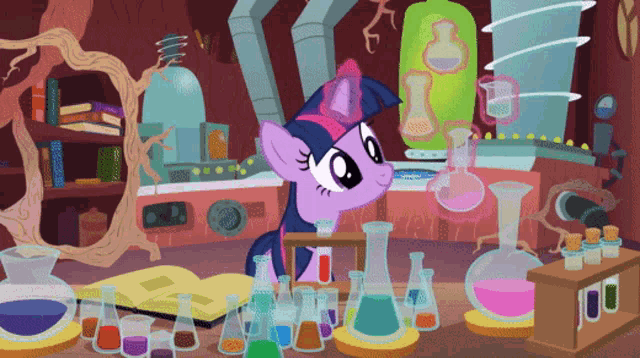Skip to comments.
Researchers Sequence DNA of Post-Columbian Domestic Horse
Sci.News ^
| July 27, 2022
| News Staff / Source
Posted on 08/01/2022 12:20:19 PM PDT by SunkenCiv
Species of the horse genus Equus first appeared on the North American continent during the Pliocene era and spread to and across Eurasia beginning around 2.5 million years ago. They disappeared from the Western Hemisphere during the megafauna extinction event at the end of the Pleistocene and the last glacial period. The return of equids to the Americas through the introduction of the domestic horse (Equus caballus) is documented in the historical literature but is not explored fully either archaeologically or genetically. Historical documents suggest that the first domestic horses were brought from the Iberian Peninsula to the Caribbean in the late 15th century CE, but archaeological remains of these early introductions are rare. In new research, scientists from the Florida Museum of Natural History and the Georgia Museum of Natural History sequenced the mitochondrial genome of a 16th century horse from the Spanish colonial site of Puerto Real, northern Haiti...
In a new study, Dr. Delsol and his colleagues examined a tooth fragment, originally misidentified as cow, found at Puerto Real.
They sequenced the mitochondrial genome, not only allowing for a correct identification, but also making this the earliest known complete mitogenome of a post-Columbian domestic horse in the Americas.
According to the team, this horse belongs to a genetic lineage called equine haplogroup A, whose members are well known from Southern Europe, supporting the hypothesis that they originated on the Iberian Peninsula.
Furthermore, this horse’s closest living relatives are the feral ponies of Chincoteague Island, Virginia, said by local folk stories to have become stranded after a Spanish shipwreck.
(Excerpt) Read more at sci.news ...
TOPICS: History; Science; Travel
KEYWORDS: animalhusbandry; chincoteagueisland; domestication; godsgravesglyphs; haiti; helixmakemineadouble; horse; horses; megafauna; pleistocene; pliocene; puertoreal; virginia; wildhorses
The discovery of a fossil horse tooth in Haiti has given surprising credence to the idea the horses escaped from a Spanish shipwreck off Virginia around 1750. [Young Chincoteague ponies wrestle on Chincoteague Island, part of Virginia's Eastern Shore, in the 1970s.]Photograph By James L. Stanfield, Nat Geo Image Collection

1
posted on
08/01/2022 12:20:19 PM PDT
by
SunkenCiv
To: StayAt HomeMother; Ernest_at_the_Beach; 1ofmanyfree; 21twelve; 24Karet; 2ndDivisionVet; 31R1O; ...
The tooth was found on a corral reef. /rimshot

2
posted on
08/01/2022 12:21:41 PM PDT
by
SunkenCiv
(Imagine an imaginary menagerie manager imagining managing an imaginary menagerie.)
3
posted on
08/01/2022 12:23:11 PM PDT
by
SunkenCiv
(Imagine an imaginary menagerie manager imagining managing an imaginary menagerie.)
To: SunkenCiv
The scientist, hard at work:

4
posted on
08/01/2022 12:29:43 PM PDT
by
CtBigPat
(The time of Crisis is ending. Now comes Normalization.)
To: CtBigPat
Everyone was overjoyed whinny succeeded.
5
posted on
08/01/2022 12:37:12 PM PDT
by
SunkenCiv
(Imagine an imaginary menagerie manager imagining managing an imaginary menagerie.)
To: CtBigPat
They all looked like Twilight Sparkle too.
To: SunkenCiv
So they were the great-great-great-great... grandparents
of the Outer Banks North Carolina wild ponies then?

To: SunkenCiv

Chincoteague Island Ponies
8
posted on
08/02/2022 4:58:26 PM PDT
by
blam
To: blam
Good place for a gallop pole.
9
posted on
08/02/2022 5:10:17 PM PDT
by
SunkenCiv
(Imagine an imaginary menagerie manager imagining managing an imaginary menagerie.)
To: SunkenCiv
"Good place for a gallop pole.See those Egrets (cowbirds) in that picture? On occasion, I can have a hundred of those in my yard. Usually after a heavy rain.
Those ponies, not horses, living there drink twice as much water as do normal horses. It is to purge out the high level of salt that they consume......also, the source of their characteristic 'pooch belly'.
"The most obvious difference between a horse and a pony is size. For most purposes, a pony is under 14.2 hands high if you ride English, and under 14 hands if you’re a western rider."
Horses are 15 hands are more.
10
posted on
08/03/2022 9:45:41 AM PDT
by
blam
Disclaimer:
Opinions posted on Free Republic are those of the individual
posters and do not necessarily represent the opinion of Free Republic or its
management. All materials posted herein are protected by copyright law and the
exemption for fair use of copyrighted works.
FreeRepublic.com is powered by software copyright 2000-2008 John Robinson





